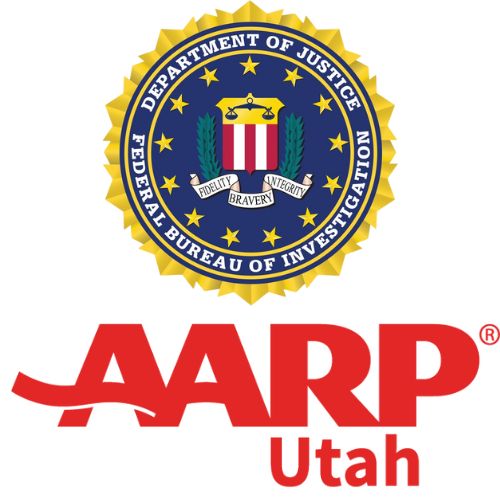AARP Hearing Center
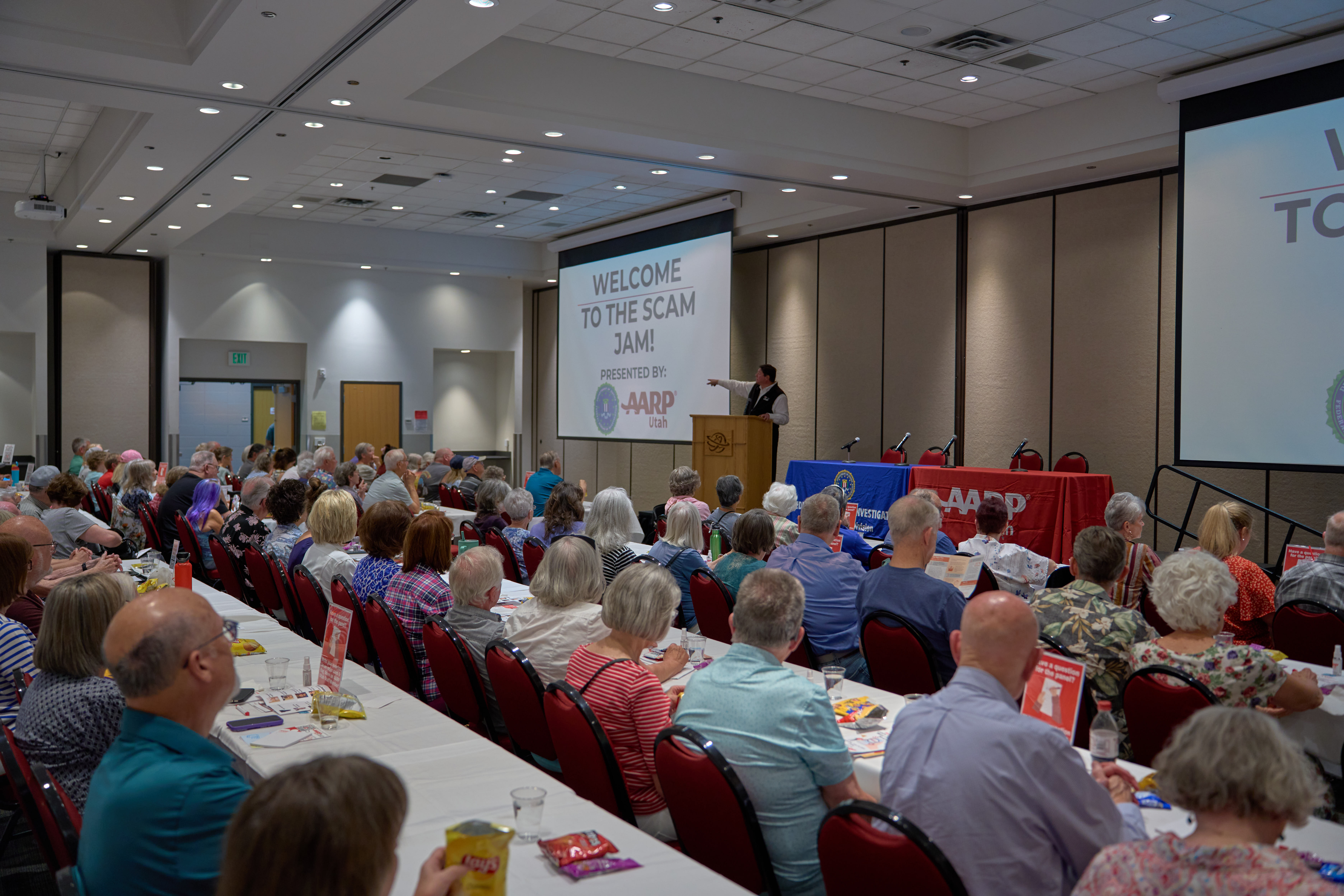
Last week, over 180 people gathered at the Salt Lake Community College Larry H. Miller Campus for a highly anticipated community event focused on scam awareness and prevention. The Scam Jam was held at the Karen Gail Miller Conference Center and was presented by AARP Utah and the FBI.

Utahns have lost more than $15.4 million to fraud so far this year, (as of June 2025) with $12 million of that lost by people aged 50 and older.
Organizers expressed their gratitude for the overwhelming support and enthusiasm of the attendees. "We are thrilled with the turnout and the level of engagement from the community," said Alan Ormsby, AARP Utah State Director. "It's clear that people are eager to learn how to protect themselves and their loved ones from scams."
Fraud prevention is crucial for AARP Utah as it directly impacts the well-being and financial security of many Utahns. AARP’s commitment to fraud prevention is part of its broader mission to enhance the quality of life for older adults, ensuring they can live safely and securely.
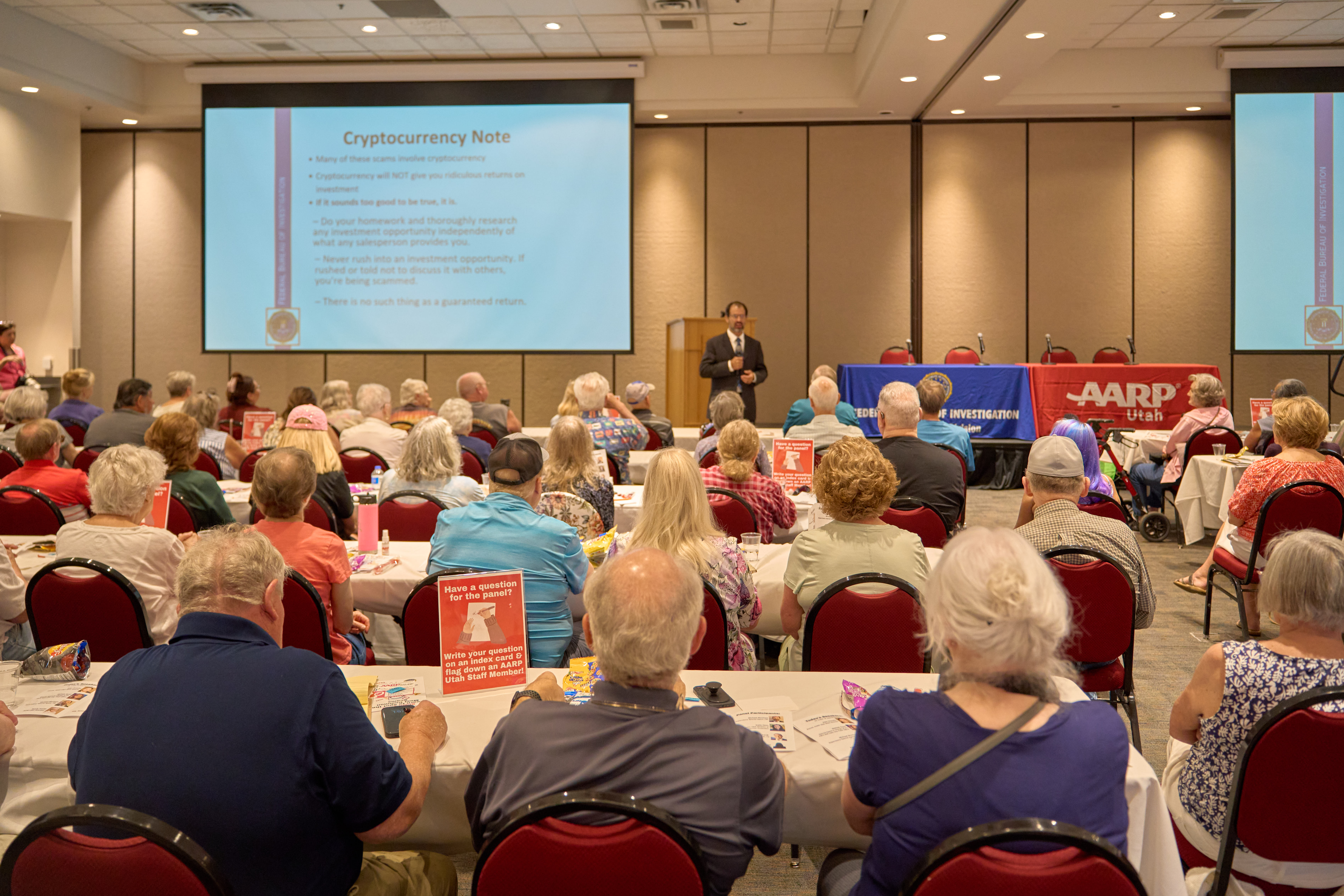
The event featured top-notch speakers from the FBI, the Division of Consumer Protection, and KSL-TV’s Matt Gephardt. Attendees had the opportunity to hear real stories from individuals who had fallen victim to scams, gaining valuable insights from their experiences. The interactive Q&A session allowed attendees to ask their pressing questions and receive answers directly from the experts.
“The success of this event underscores the importance of community education and the power of coming together to combat fraud”, said Ormsby.
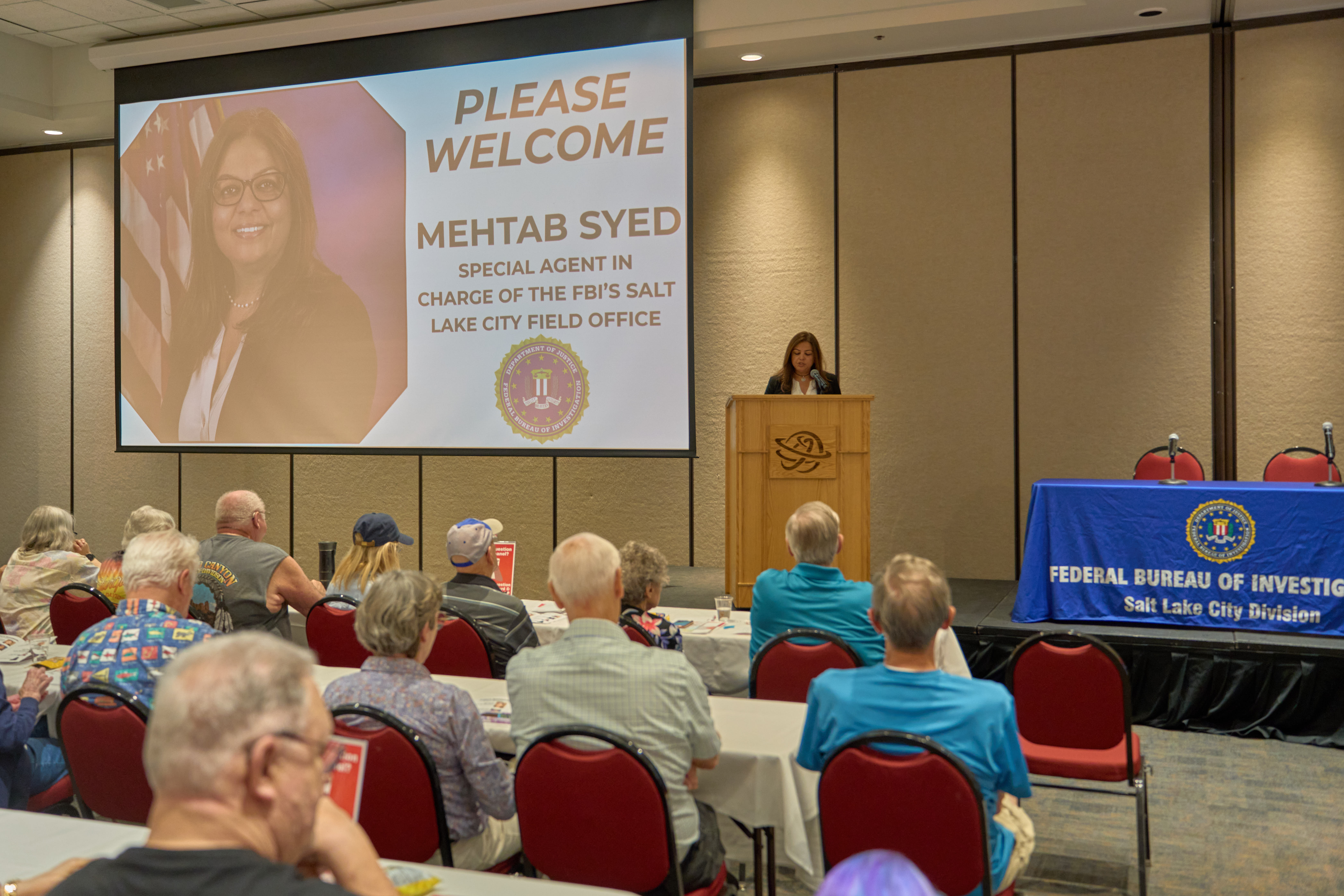
Mehtab Syed, the Special Agent in Charge of the FBI’s Salt Lake City Field Office, offered opening remarks. She shared her impressive background and priorities in Utah, which includes going after gangs, cartels, and drug traffickers, protecting citizens, and lending technical support and intel to other federal and local agencies.
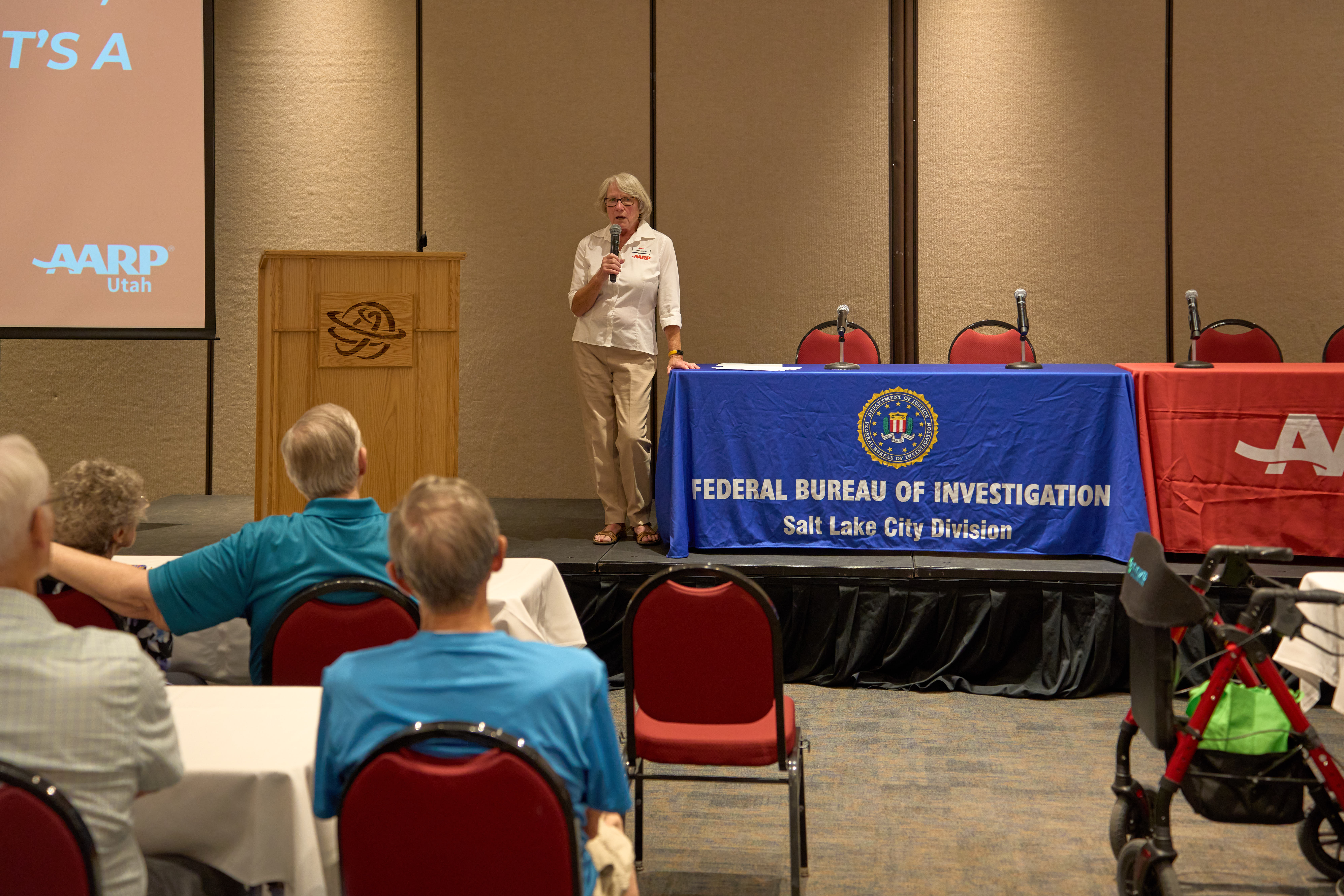
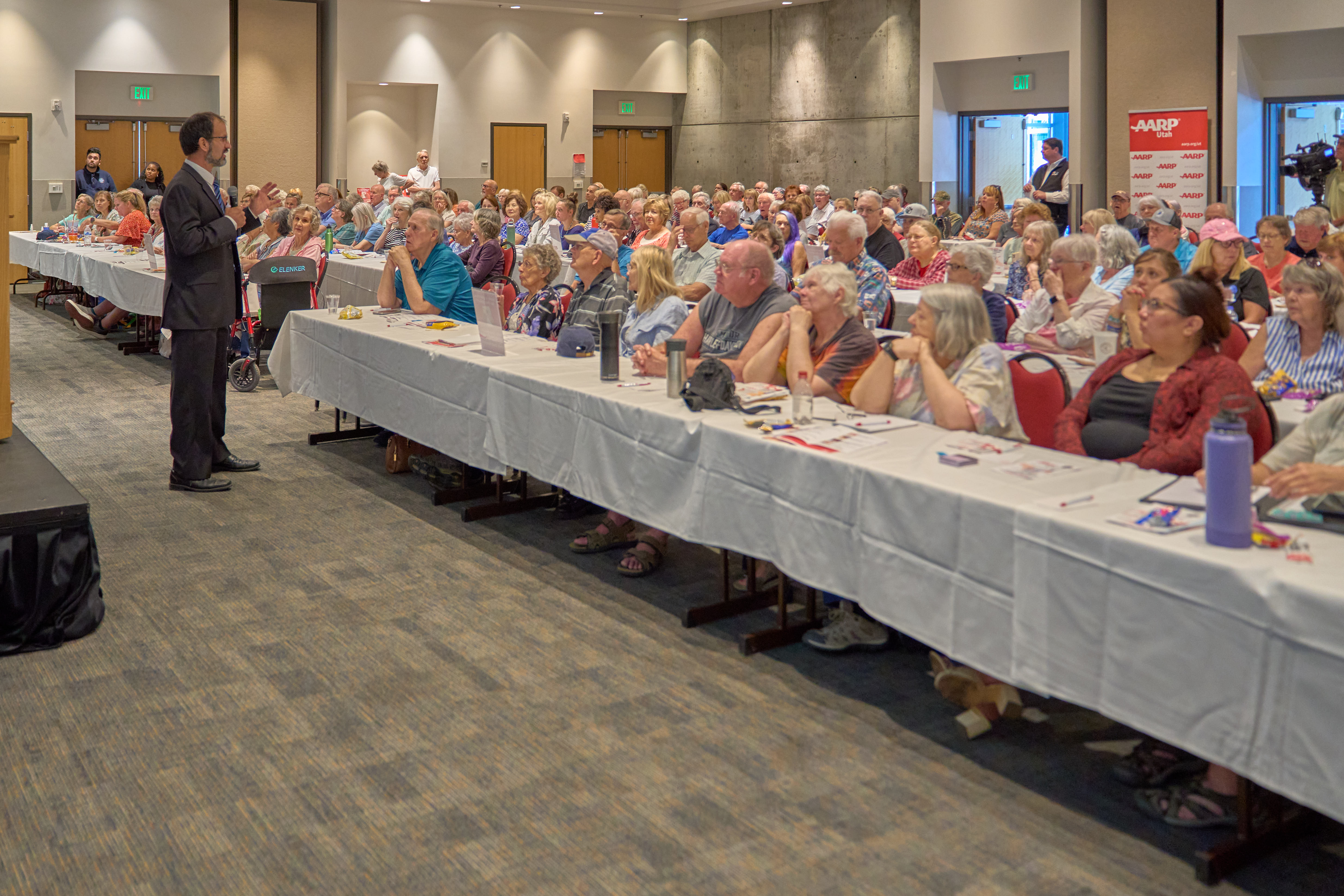
Sandy Hunter, a volunteer with AARP Utah, shared her experience of falling victim to a text scam. "I guess I’m kind of embarrassed to say I got scammed by a text, because I actually, even at my age, feel that I am pretty tech savvy," Hunter said. You can learn more about her story and what Sandy learned by reading our web story titled: Received a Text About Paying a Road Toll? It’s a Scam.
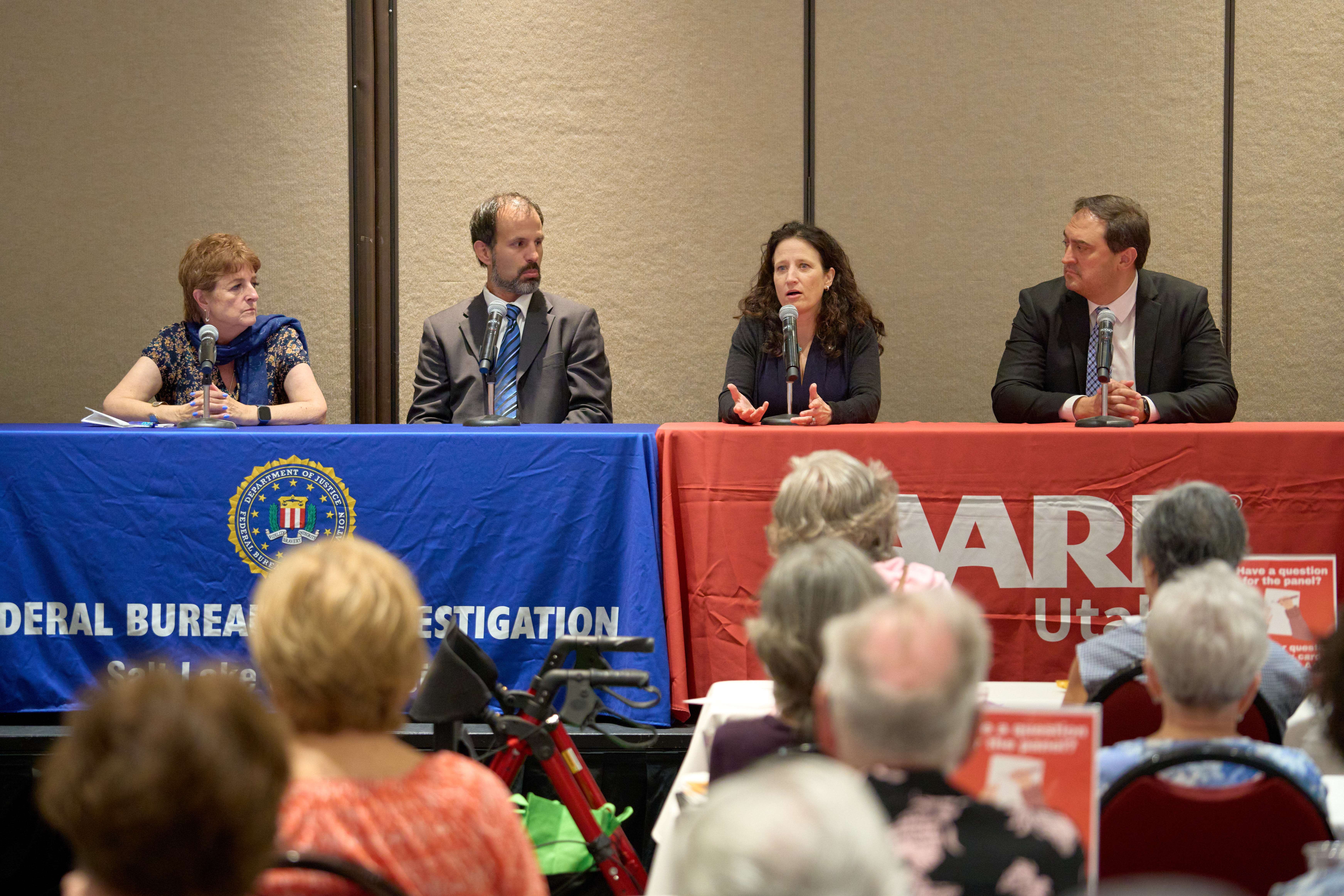
Rita, a woman from Montana, also bravely spoke about the romance scam she fell victim to. She shared that she lost $90,000 to a ‘celebrity’ who turned out to be a scammer. To read more about her story, and watch a video of her interview, visit the FBI Salt Lake City webpage.
Last year, Americans lost $12.5 billion to fraud, marking a 25% increase over the previous year.
Matt Gephardt, KSL-TV Consumer Investigative Reporter: Matt emphasized the importance of prevention, stating, "Once it’s gone, it’s so much harder to get back." He shared valuable insights from different fraud stories he’s covered throughout his career, including an interview with a former scammer.
Supervisory Special Agent Michael Montoya, FBI: Mike highlighted the importance of paying attention to email addresses, noting that phishing or scam emails often come from addresses with small typos, such as “guv” instead of “.gov.”
Katie Hass, Utah Division of Consumer Protection Director: Katie encouraged attendees not to be embarrassed to talk to friends or call the division. "The faster you call us, the faster we can act," she said.
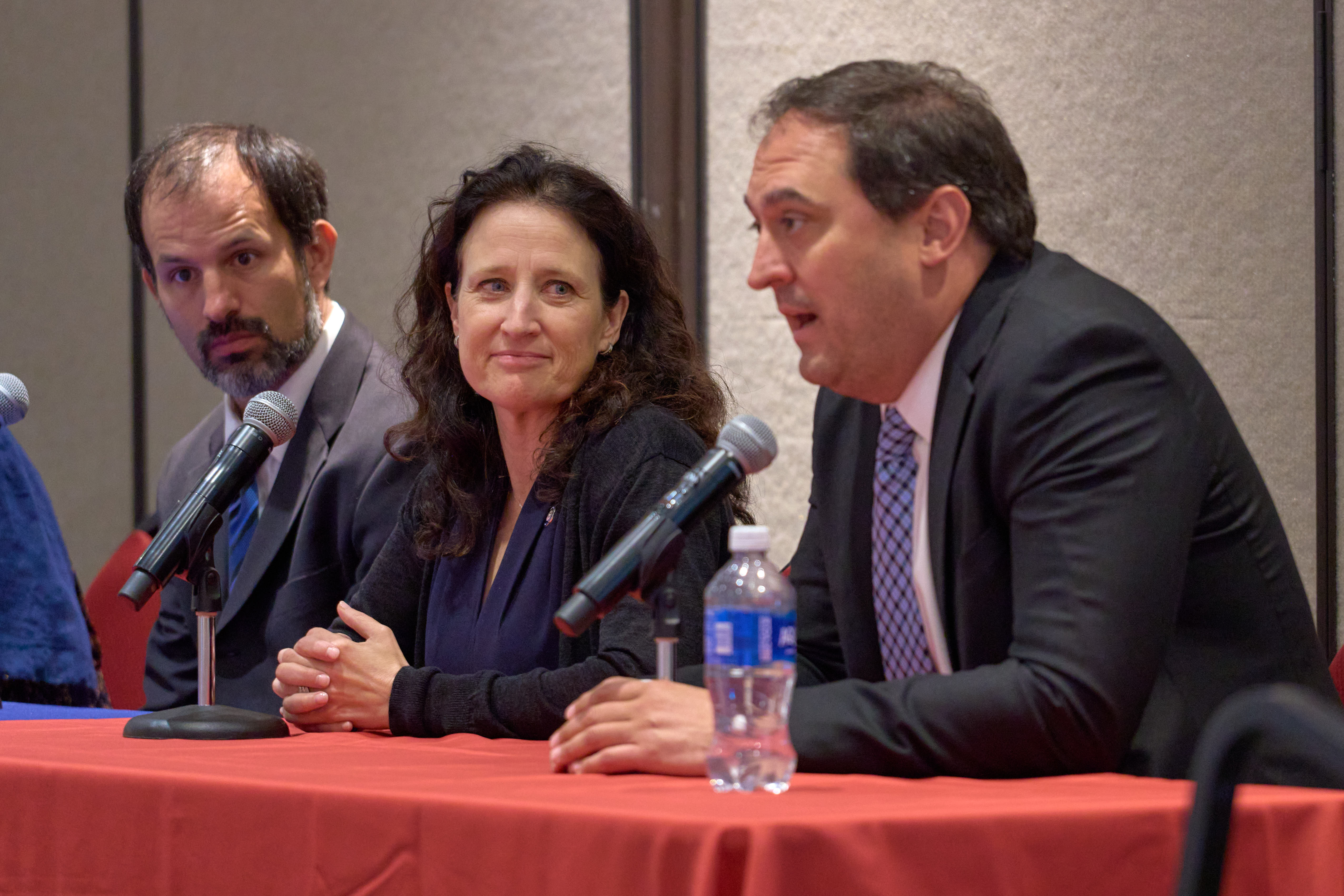
- IC3.gov — The FBI’s Internet Crime Complaint Center where people can report scams.
- FBI Scams and Safety website
- DOJ’s Elder Justice Initiative’s National Elder Fraud Hotline — 833-372-8311
- AARP’s Fraud Watch Network — The network is meant to empower to people to avoid scams, but it supports them if they become a victim.
